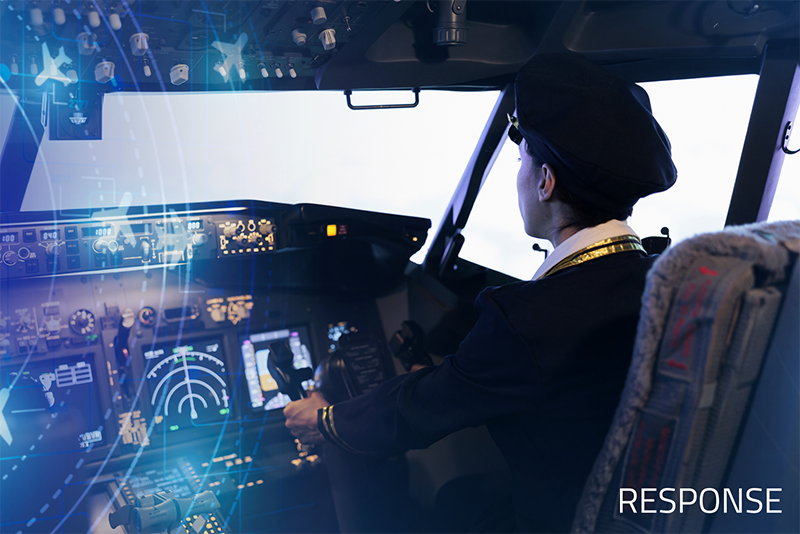The RESPONSE project (REduced or Single Pilot Operation iNcapacitation Safety Enhancement), funded by the SESAR 3 Joint Undertaking under the EU’s Horizon Europe programme, officially kicked off on 20 September 2024 in Madrid. The project aims to tackle the critical challenge of pilot incapacitation during commercial flights. A consortium, consisting of Collins Aerospace Ireland, Deep Blue, CRIDA, NLR, DLR and ISAE-SUPAERO, came together at the CRIDA A.I.E. headquarters to initiate the work.
Project focus
Current EU regulations require at least two pilots in the cockpit for commercial flights, ensuring safety through redundancy. However, addressing the challenge of pilot incapacitation remains critical. RESPONSE focuses on developing innovative solutions, including advanced monitoring of a pilot's cognitive state and supporting safe return-to-land operations in the event of incapacitation. These efforts aim to enhance operational safety by integrating cutting-edge technologies and strengthening air-to-ground coordination.
Workshop highlights
On 17 October 2024, the RESPONSE Consortium held its inaugural technical workshop at the ISAE-SUPAERO campus in Toulouse, France. The event began with a visit to ISAE-SUPAERO’s Aeroclub, where participants explored the institution's renowned experimental flight engineering program. Highlights included a close-up look at the P68, a twin-engine aircraft transformed into a flying laboratory equipped with advanced sensors and avionics for cutting-edge research.
The formal workshop that followed focused on key areas such as defining partner roles in future activities and validations, planning experiments and exploring synergies with other projects. The project will be carried out in four different work packages:
- WP1 - Pilot Incapacitation Transition Monitoring, led by DLR;
- WP2 - Safe Return to Land CONOPS Evolution, led by Collins;
- WP3 - RESPONSE Management, led by Collins;
- WP4 - Dissemination, Communication, Exploitation, led by Deep Blue.
At the end of the day, attendees had the opportunity to tour ISAE-AERO’s advanced facilities, concluding the day with a session on their state-of-the-art flight simulator.
The RESPONSE Consortium will now focus on its main objectives:
- Delivering improved physiological assessment methods to detect pilots’ transitions from an attentive to incapacitated state with functional near infrared spectroscopy, electroencephalography sensors and an eye-tracking camera system
- Integrating an air-to-ground digital assistant to enhance task delegation between airborne and ground teams, enabling greater automation and streamlined coordination.
Follow our journey on LinkedIn and stay tuned for our website!

